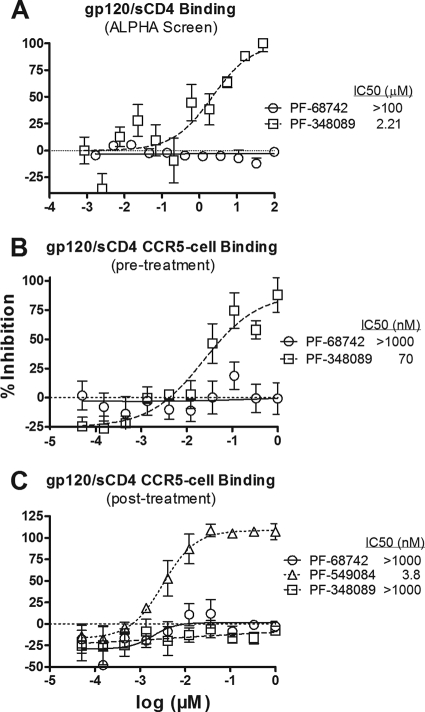FIG. 4.
PF-68742 does not block CD4:gp120 complex formation. (A) AlphaScreen proximity assay. Biotinylated sCD4 bound to streptavidin-coated (donor) beads and His6-tagged gp120 bound to nickel chelate (acceptor) beads were incubated for 2 h in the presence of incremental concentrations of either PF-68742 (circles) or PF-348089 (squares). Chemiluminescence was measured by using a Fusion HP plate reader. (B) PF-68742 does not inhibit label-free sCD4 from complexing with gp120 and interacting with CCR5-bearing cells. HIV-1 gp120 was preincubated with PF-68742 (circles) or the gp120 antagonist PF-348089 (squares) for 1 h. The pretreated gp120 was then incubated with sCD4 for 15 min, and any resulting sCD4:gp120 complexes formed were incubated with CCR5-expressing cells. CCR5-bound sCD4:gp120 was detected by incubation with sheep anti-HIV-1 gp120, followed by Eu-labeled donkey anti-sheep IgG. (C) PF-68742 does not inhibit precomplexed sCD4:gp120 from binding to CCR5 coreceptor. Preformed sCD4:gp120 complexes were incubated with CCR5-expressing cells in the presence of PF-68742 (circles), the CCR5 antagonist PF-549084 (triangles), or the gp120 antagonist PF-348089 (squares). CCR5-bound sCD4:gp120 was incubated with sheep anti-HIV-1 gp120 and detected by Eu-labeled donkey anti-sheep IgG.

